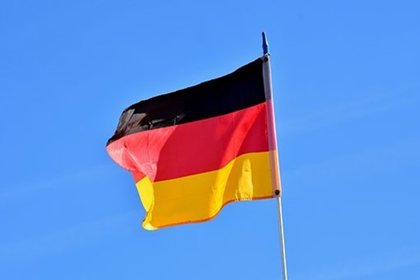-
German Flame Committee and the German Federation of Industrial Research Associations funds ZOSPE project at University of Dresden
Date posted:
-
-
-
Post Author
Greg Kelsall
-
-

Deutsche Vereinigung für Verbrennungsforschung (DVV), IFRF’s German National Flame Committee, is a member of the German Federation of Industrial Research Associations (AiF). This is the leading national organisation promoting applied research and development benefiting Germany’s small and medium-sized businesses. AiF provides public funds for research projects, with DVV carrying out such projects through its university and research organisation members. DVV’s industry members provide consultancy to the projects throughout their duration.
In addition to three projects reported previously by the IFRF, the following project called ‘Zospe’ at the Technical University of Dresden is also underway. The overview of the project is below:
![]()
Method development for characterising the ignition of pulverised fuels by spectroscopy in an ignition oven (ZOSPE)
Increasing efficiency, reducing emissions, and extending travel times continue to be important objectives in the development of burners and combustion chamber systems. In addition, questions of fuel and load flexibility increasingly play an important role. The higher the demands placed on the systems, the more precisely they must be designed for the respective application (fuel, output, flexibility, emission, etc). This means that beyond laboratory tests and experience from already similar practical plants, fuel-technical tests on pilot plants and mathematical models must increasingly support the design. Nowadays, biomass, process residues and by-products, as well as waste, are increasingly used in existing combustion plants as substitute fuels, or together with fossil fuels for co-combustion. However, this is not readily possible due to changes in fuel properties. In this case, the laboratory tests of the new fuels or fuel mixtures can provide the first information on the possible changed combustion behaviour. To date, however, there is no standardised measurement method for determining the reaction kinetic properties. Therefore, special attention should be paid to the investigation of the ignition and combustion behaviour of pulverised fuels. Investigation on the ignition and burning behaviour are often performed for single particles or particle clouds.
One method for the examination on single particles is to use a drop tube reactor like the FIELD-tube. Using the FIELD-tube, the combustion behaviour, which represents the temporal course of the combustible components in fuel particles during the combustion process, dependent on external conditions like heating rate, gas composition, particle size as well as the fuel composition can be determined. The combustion curves obtained not only allow the reactivity of fuels to be compared with each other, but also the determination of kinetic parameters for the subsequent computer-aided combustion simulations. The high number of dependent variables leads to considerable measuring insecurities, high costs and difficulties in representative application to inhomogeneous or time-varying fuels such as biomasses. Using single particle methods, the essential influencing factor of particle-wall and particle-particle interactions cannot be determined.
To consider these essential processes in the combustion of particle clouds, the Zelkowski ignition oven method can be used. In this method the ignition delay time measuring the change in light intensity and its dependence on the parameters noted above can be estimated. The ignition delay time plotted against the combustion gas temperature results in the ignition hyperbole which can be used to derive the burner design and settings.
The aim of this AiF project is therefore to expand the ignition oven method by combining it with near infrared spectroscopy to obtain temporal and spectral data of the ignition and combustion behaviour of powdered fuels and using a statistical-empirical model. Finally a standardised method should be developed.
Funding Period: December 2021 – May 2024
Funding Agency: German Federation of Industrial Research Associations (AiF)
Project No: 22159
Research Organisation: German Flame Research Committee (DVV eV)
Research Stations: Technische Universität Dresden
Contacts:
Project Manager: Dr.-Ing. Daniel Bernhardt, George-Bähr-Straße. 3b, 01069 Dresden, Germany, +49 351 463 33143, daniel.bernhardt@tu-dresden.de
Scientific project work: M. Sc. Matteo Giesen, George-Bähr-Straße. 3b, 01069,
Dresden, Germany, +49 351 463 32322, matteo.giesen@tu-dresden.de

